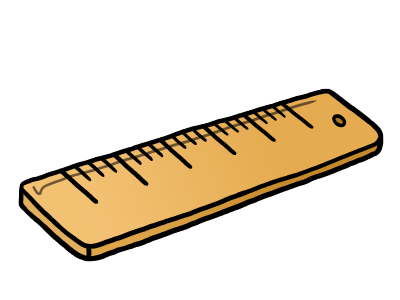
Photo credit: Karri Huhtanen on Flickr
I sit too much. You probably do too. The rise of office jobs and screen-based work and leisure has taken its toll. Incredible advances in chair-comfort technology have made sitting irresistible. And if a cat crawls into your lap… forget it. That chair is your new home. Sitting is the new smoking. It’s killing you. Quick, run for the hills. Or better yet, buy an activity tracker. I guess.

Unfortunately, sitting and smoking are two of my favorite things
I bought an activity tracker. For all of my distaste of the quantified self, I did it anyway. This isn’t a product review—I’m not interested in the strengths of weaknesses of various activity trackers paired against each other—but if you’re interested, I bought a Fitbit Alta because it is small and not ugly and it tells me when I get a text message, which is fun and exciting. What follows is a personal reflection on why I bought it, how it’s changed my day-to-day activity, and why I think these observations are significant.
I bought an activity tracker for three major reasons. First, I wanted to track my sleep. I’ve always had problems with sleep—too much, too little, not restful, so restful that I could be mistaken for a corpse, and so on. Some times I can get nine hours of sleep and still need an afternoon nap, and other times I can run on three or four hours of sleep without even noticing. This is actually a symptom of bipolar disorder, and part of managing my health is paying attention to my sleep and understanding how it can trigger mania and depression.
That leads me to my second reason: the silent alarm. I’m an early riser and (sometimes) a heavy sleeper. My husband is a late riser and a light sleeper. A silent alarm seemed like a good solution—I can get out of bed relatively quietly without pangs of guilt. Now we just need to replace all of the flooring in the entire apartment so it doesn’t sound like an ogre is walking through the kitchen.
Finally, I was enticed by the “get up and move” feature, which reminds you to walk around for 2-3 minutes every hour. At ten to the hour it sends me a polite and encouraging message like “Get up and move!” or “Want to take a walk?” When I reach my hourly step goal it celebrates my achievement. It fact, it celebrates everything I do. 7,000 steps? Here, have some excessive vibrations and fireworks! Sleep well last night? “Sweet, you met your goal!” It’s like a little digital cheerleader, patting me on the back for slightly decreasing my sedentary lifestyle.
Fitbit never shames me, which is more than I can say for myself. If you don’t meet your goal, no worries. No frowny faces or bright red alerts. It is only celebratory. This works for me, as self-flagellation is a bad habit of mine. Of course, there’s a practical element of this for Fitbit as a company; who wants to wear a wrist band that chastises you for watching a movie in the afternoon?
I’m surprised how much I like counting my movements. I bought this device with the expectation that I would send it back. I thought it might be annoying, or that I would feel guilty for how sedentary I am. Or, I thought it would just be a piece of crap that didn’t work. But I’ve had it for almost two weeks now and I still like it. I also forgot how nice it is to have a clock on my wrist. Whoever thought that up was really on to something.
But here’s what troubles me about how much I like this tracker—I bought it because I felt so out of touch with my own body. I find it comforting to know, as a quantifiable fact, that I am tired because I didn’t sleep well. I’m surprised by how often I need to be reminded to move. It’s not exactly shocking, but seeing the direct correlation between how much work I get done and how little I move is disturbing. It’s almost as if my mind is waging a war against my body, and the activity tracker is a UN diplomat trying to broker a peace.
It’s a deeply human experience to look for a techno fix for our problems; from the first weapons and tools made by pre-homo sapiens to the index card I taped over my annoying coffee maker light, there is a long human tradition of seeing a problem and inventing a technology to fix it. Sometimes a techno fix has a reasonable amount of success addressing particular problems, and sometimes it offers a misguided alternative that fails to address the root causes of inequality and social ills.

So many problems can be solved with index cards and duct tape

Works on Microwaves as well!
The activity tracker does a bit of both; it helps mediate the gap that I feel between my perception of my body and the material conditions of that body, but fails to address the structural conditions of a society that requires so many of us to sit at a desk for eight to nine hours a day, five (or six!) days a week. Until we shorten the work day, demand more breaks that allow us to be active in whatever way we are able, or diversify the types of work that require long periods of sitting, activity trackers are a bandaid on the bullet wound of sedentary lifestyles that are killing us.
OK, gotta go—I need 56 steps to meet my goal for the hour.
Britney is on Twitter.












 I’ve dedicated a few essays to interrogating encryption and automation as a replacement for human judgement, politics, and inter-personal trust. Central to that argument is the observation that the replacement of institutions with technologies like blockchains are a rehashing of the arguments that set up those failing institutions in the first place. (You can read the full argument
I’ve dedicated a few essays to interrogating encryption and automation as a replacement for human judgement, politics, and inter-personal trust. Central to that argument is the observation that the replacement of institutions with technologies like blockchains are a rehashing of the arguments that set up those failing institutions in the first place. (You can read the full argument